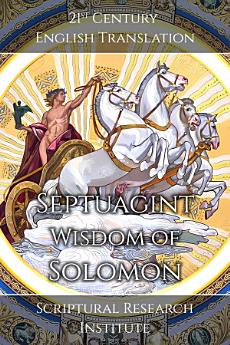Septuagint: Wisdom of Solomon
Учкай маалымат
As a result, Wisdom of Solomon is a text that cannot be proven to have existed earlier than 132 BC, when it appeared in the Septuagint, and some scholars have concluded it was written in Greek at the Library of Alexandria. Wherever it was written, it is a very un-Jewish Israelite text, which contradicts, and occasionally even attacks the Torah. These contradictions are often interpreted as indicators that the writer was not particularly knowledgeable regarding the Torah, suggesting a Hellenized Jew, and therefore, it is generally assumed the book was written shortly before its inclusion in the Septuagint. All of these assumptions are, of course, based on the underlying assumption that Judaism was already standardized before the Greek Era. The books of Maccabees tell a very story.
Given the complex religious history of the Second Temple Era, and the fact that none of the Israelites in Elephantine appear to have even heard of Moses in the 5ᵗʰ century BC, the Wisdom of Solomon does not seem out of place or anachronistic at all, and dismissing it based on contradictions with the Torah seems completely invalid. The Wisdom of Solomon itself appears to have been redacted before the Greek translation, as the first half is about the spirit of wisdom, Sophia in Greek, who is credited with actually doing most of what Godwas credited with doing in the Torah, however, this changes abruptly to crediting the Lord in chapter 11, and Sophia disappears entirely from the rest of the book. Chapter 11 was also the beginning of what scholars call the ‘history’ section of the book, which generally retold the history found in the Torah up until the exodus from Egypt, however, with some differences. One significant difference was the identification of the Lord as the Sun in chapter 16.











